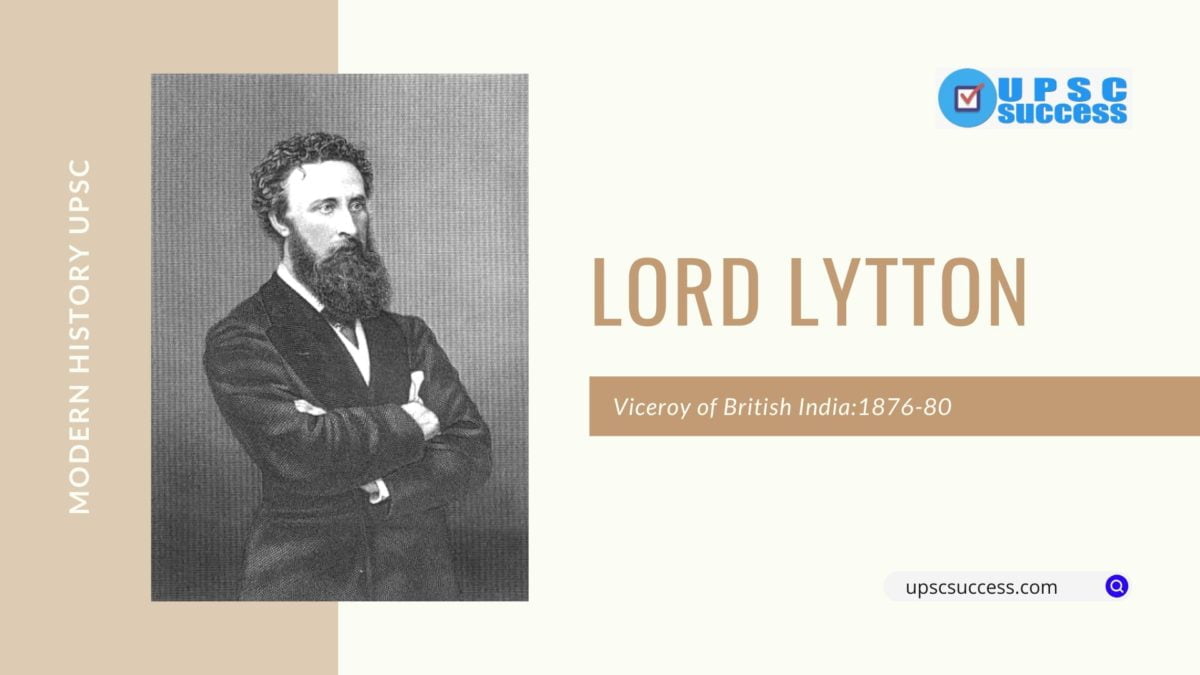Contents
| Born: | 8 November 1831, United Kingdom |
| Died: | 24 November 1891, Paris, France |
Important Works
– Royal Titles Act of 1876
– Vernacular Press Act, 1878
– Arms Act, 1878
– Nationalist view – Due to the High rate of taxation purchasing power had reduced. Government view – Drought is natural phenomenon due to which people become poor
– Ignored severe famine and organized durbar. Proclaimed Queen Victoria “The Empress of India”
– Abolished tax on cotton for British traders
– Maximum age to take up the civil services exam lowered from 21 to 19
– Second Afghan War (1878-80)
– Appointment of the first famine commission in 1878
FAQs
Edward Robert Lytton Bulwer-Lytton, 1st Earl of Lytton, known commonly as Lord Lytton was an English politician who served as Viceroy of India from 1876 to1880. He is commonly regarded as a ruthless viceroy due to his approach to the Great Indian Famine of 1876-1878 and the Second Anglo-Afghan War.
Lytton passed the Vernacular Press Act in 1878 which curbed the liberty – Of the Indian Press publishing newspapers in local Indian languages. Lord Lytton passed the Arms Act in 1878 by which the Indians were asked to seek a licence to keep, sell or purchase arms.

